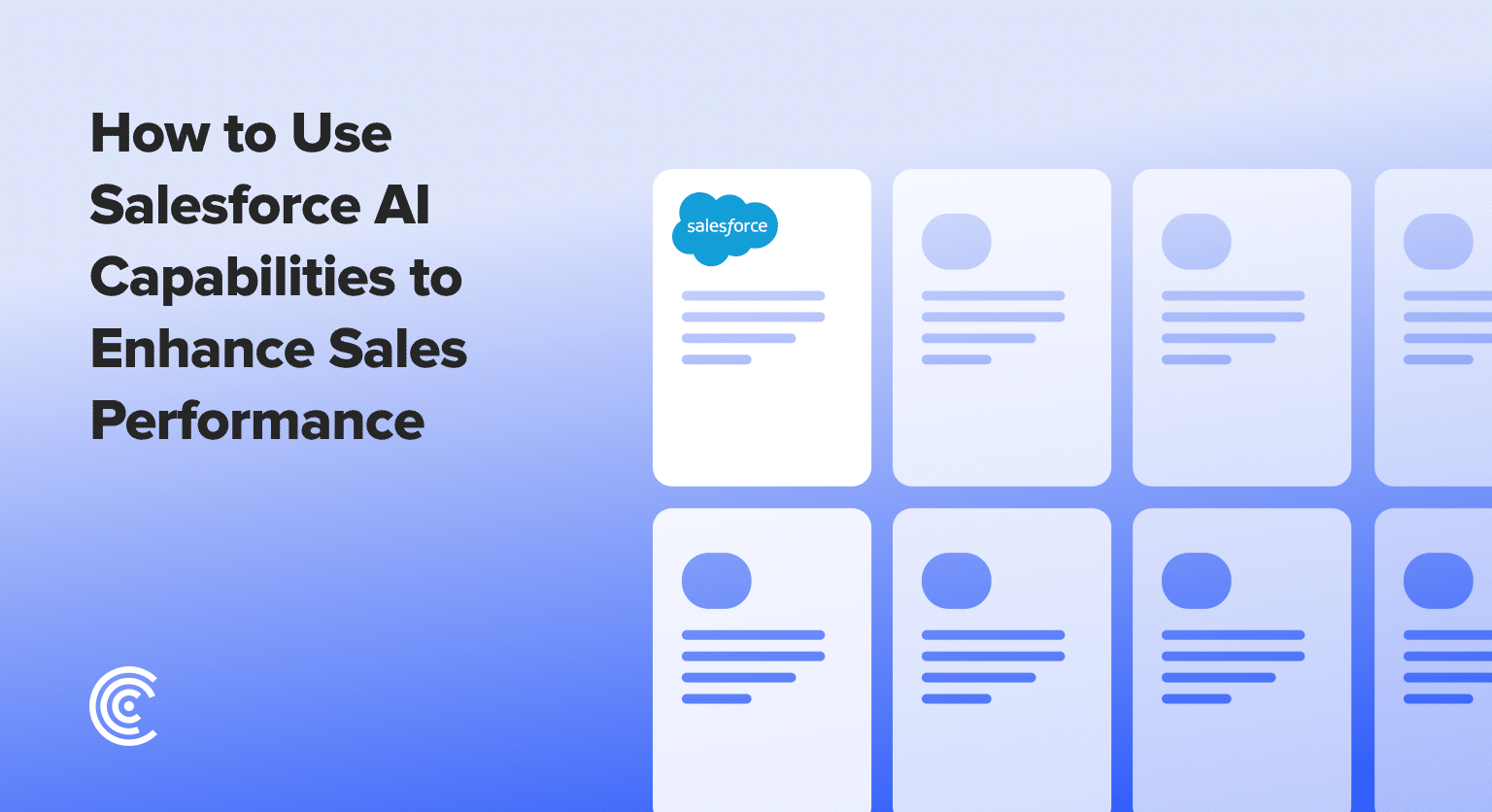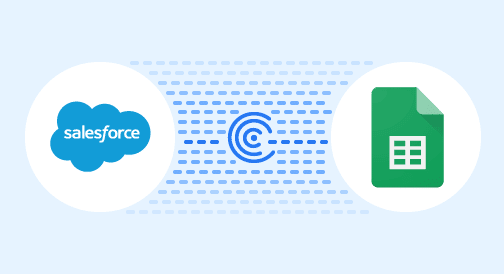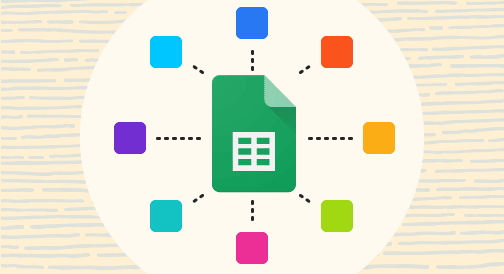Are you struggling to enhance your sales performance? The answer to such a problem could lie precisely within Salesforce’s AI capabilities. Salesforce’s AI tool, Einstein, processes over 1 trillion transactions, offering a deep understanding of customer needs and behaviors.
Businesses using Salesforce’s AI can access hyper-relevant data and insights that transform their selling process, ultimately driving significant revenue growth.
This blog post discusses how Salesforce AI could change the game for your selling process, bringing in immense revenues with hyper-relevant data and insights. Unleash your sales team to work at full power with Salesforce AI.
Understanding Salesforce AI Capabilities
One critical aspect of Salesforce AI is predictive analytics. As one of the significant areas of analysis for a large amount of data, predictive analytics helps predict the possibility of something happening soon. Therefore, it might be quite useful for businesses in their decision-making.
Automated data entry and recommendation are other key features of AI in Salesforce. Data entry by a human hand takes time and is usually prone to errors. So, Salesforce AI automates this whole process, including capturing and organizing data from multiple sources like emails, social media, and customer interactions. This is also beneficial for salespeople, as it gives them recommendations on the products or services they offer based on past interactions and the customer’s preferences.
Natural Language Processing (NLP) is another functionality in Salesforce’s AI. In this context, NLP gives users a more natural way to interact with Salesforce systems by helping them understand and interpret human language. It processes voice commands and conversations, provides information searching, updates records, and performs many other functions using natural language. By avoiding complex systems that must be trained, the user experience and productivity improve.
Another benefit of Salesforce AI is that it brings actionable insights. The complex data gets converted into information and vivid visualizations using AI technologies. The latter helps managers and top-level executives draw useful insights that pertain to their business performance, customer satisfaction, and the sales pipeline. It allows pinpointing the key trends and patterns that permit data-driven decisions to ensure the effectiveness and profitability of an organization with the help of trends and patterns.
Application of AI in Sales Processes
The following applications in AI can help streamline your sales processes:
Lead Scoring and Prioritization
One of the most critical applications of AI in the sales process is lead scoring and prioritization. AI algorithms can recognize and score potential leads based on demographics, past buying behavior, and online activity. The AI analyzes that data, creating patterns of the likelihood of the conversion.
- Integrate AI algorithms into your CRM system to evaluate potential leads based on collected data such as demographics, past purchasing behaviors, and online activities.
- Use machine learning to identify patterns that predict the likelihood of conversion, allowing the sales team to focus on the most promising leads.
Here is an example of using Einstein lead scoring. If you’d like to enable Einstein, you can read more about this in this guide.

Image source: Salesforce
Case Studies
Below are some of the case studies that bring to light how AI makes a difference in lead scoring and prioritization:
HubSpot
Predictive lead scoring from one of the leaders in marketing automation was designed to find the leads most likely to become customers. Before that, the models from HubSpot machine learning scrutinize data points from website activity to email interactions and many behaviors on social media to rank these potential promising leads. This focus allows sales teams to concentrate their efforts where they matter most, further ensuring they improve conversion rates.
IBM
IBM helps predict the leads most likely to close by scoring them against millions of data points. Their system has enabled an outstanding threefold improvement in lead conversion rates. The integration will facilitate tracking and analysis of lead behaviors so that sales teams can derive insight from it to use in their strategies to bring better results.
Personalized Customer Interactions
AI is massively used in sales through personalized customer interactions that enable businesses to tailor the pitch and communication for individual customers based on their preferences and insights acquired via AI.
This involves using artificial intelligence to study customer data and behavior patterns, alerting the sales representative of their purchase history, tendencies, preferences, and interests. This enables a more personal approach, like suggestions of purchases relevant to their interests, and possibly a much more personalized and engaging sale.
- Employ AI to analyze customer data and behavior patterns extensively. This should include purchase history, preferences, and engagement across platforms.
- Develop call center systems that use this data to tailor communications and sales pitches to individual customers, enhancing personalization and engagement.
CRM Automation
Secondly, artificial intelligence improves customer relationship management (CRM). It helps automate several areas within CRM activities, such as data input, lead generation, and follow-up communication.
This increases customer satisfaction and reduces customer response time through AI-driven chatbots that handle customer queries and provide instant support. Conversely, AI empowers sales teams to review vast amounts of customer data, point out significant trends, and get actionable insights for changes in the selling process.
- Implement AI tools to automate repetitive CRM tasks like data entry, lead generation, and follow-up communications.
- Use AI-driven chatbots to handle routine customer inquiries and provide instant responses, which improves customer service efficiency and satisfaction.
You can make use of Salesforce’s Einstein bots. To learn more about this, click here.
Sales Forecasting
Another field of application in which AI is valuable concerns the forecasting of sales trends. With the help of AI, algorithms can study historical sales trend data, market trend data, and incoming outside factors to pinpoint any emerging trend and precisely predict the future performance of the trend. This thus allows businesses to make informed decisions concerning inventory management, production planning, and resource allocation. The information also assists in strategic planning, indicating what might be demanded within the market so that they can prepare in advance of the needs and not be caught unaware by other rival firms.
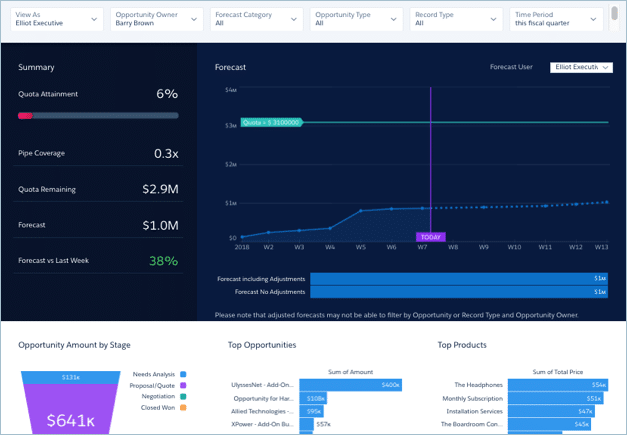
Image Source: Salesforce
Improving Sales Team Productivity with AI
AI has the potential to revolutionize sales teams’ operations by automating routine tasks and providing valuable insights that enhance training and performance.
Automation of Day-to-Day Tasks
The utility of AI in the sales field lies in automating routine tasks such as data entry and scheduling, which are time-consuming and interfere with the smooth flow of the selling process. By automating these tasks, AI frees up human time, allowing sales teams to focus on building customer relationships and closing sales.
For example, an AI-powered CRM system can automatically capture and update customer information without manual data entry. This saves time and ensures the data is current and accurate, making sales interactions more effective. AI-driven tools can also simplify the appointment and scheduling process by automating what typically involves a lot of back-and-forth communication.
Impact on Productivity and Efficiency of the Sales Team
Automating these sales tasks enhances a sales team’s productivity and efficiency. With more time available, sales representatives can focus on selling activities rather than administrative tasks, leading to increased sales volume and revenue.
Additionally, AI can offer insights and recommendations that enhance performance. AI-powered analytical tools can sift through large datasets to identify patterns and trends in consumer behavior. This information enables salespeople to make informed decisions, tailor their approaches for each customer, and increase conversion rates.
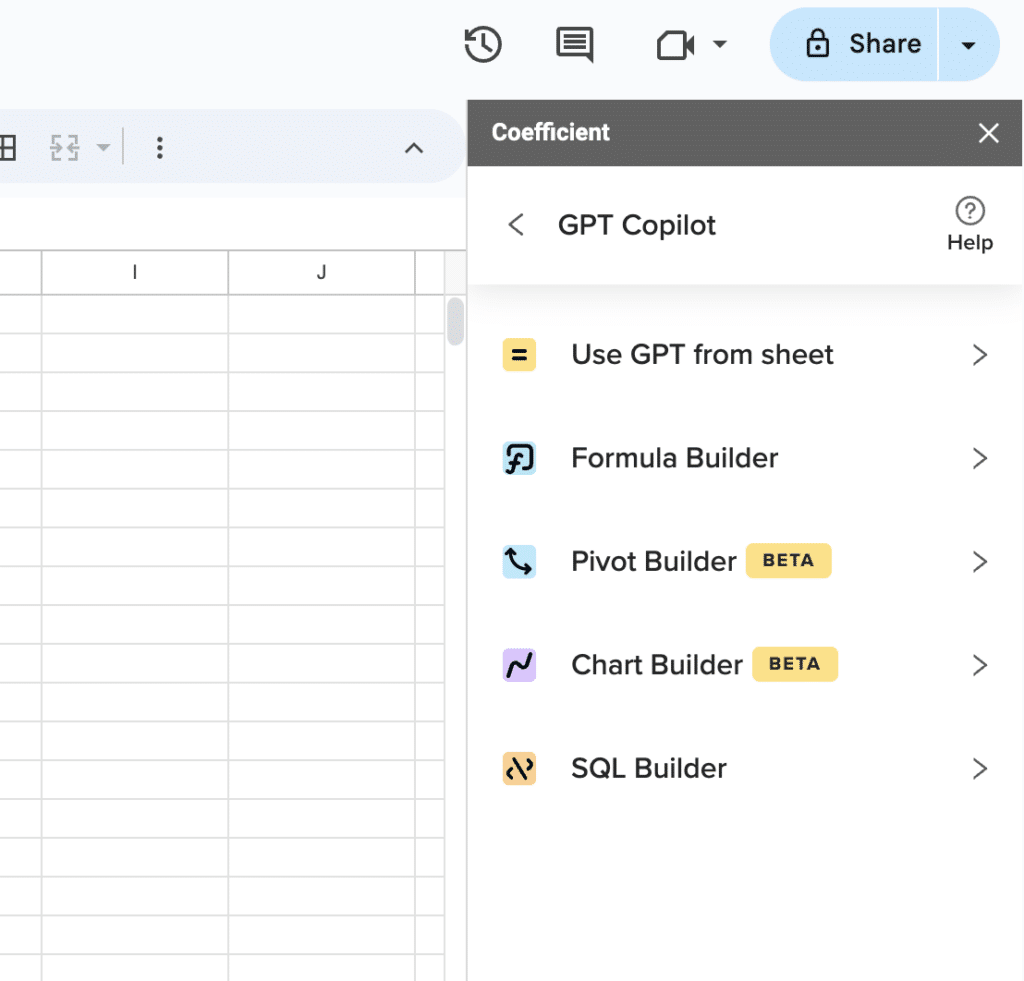
Supercharge your spreadsheets with GPT-powered AI tools for building formulas, charts, pivots, SQL and more. Simple prompts for automatic generation.

Training and Human Performance Improvement
AI also plays a crucial role in training and performance enhancement. It can analyze training needs and create personalized learning programs for sales representatives. AI identifies knowledge gaps by analyzing individual performance data against benchmarks and recommends specific training modules or resources to address them.
Conversational AI coaching tools provide real-time feedback and guidance during sales activities. They analyze sales calls and meetings to assess a salesperson’s communication skills, objection handling, and closing techniques. Based on this analysis, AI offers personalized recommendations and suggestions for improvement, helping sales representatives refine their skills and become more effective.
Integration of Coefficient with Salesforce
Coefficient is a disruptive technology that enriches systems with increased connectivity and data integration into Salesforce from within their spreadsheet. With cutting-edge functionalities and features, Coefficient’s real-time data analytics brings the decision-making ability to reality.
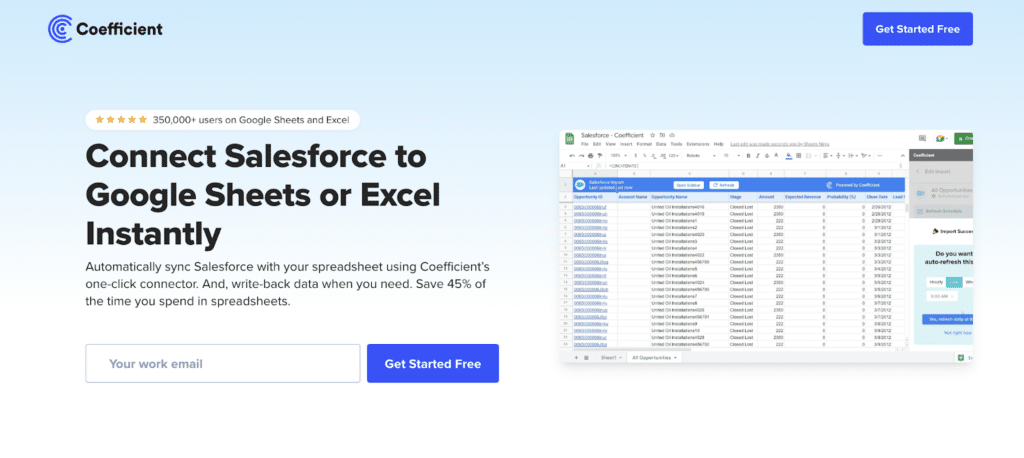
What’s great about Coefficient is that it can easily be integrated with Salesforce. This has allowed every business to use information from, say, many other sources—like Databases and BI tools, Marketing Automation platforms, Support Systems, and other third-party tools. Businesses can now take an integrated approach, view the data holistically, and make informed decisions based on the most accurate, current information.
Coefficient offers AI functionality that users can get to work for their sales data. Such AI functionality provides companies with valuable insight into predictions that help find trends, optimize sales processes, and improve performance throughout operation. Coefficient is built from the ground up for AI capabilities that help businesses streamline the data analysis process to make data-driven decisions.
One of the critical features in Coefficient—Formula Builder—allows users to write SOQL (Salesforce Object Query Language) queries and fetch or manipulate data inside Salesforce. This will enable the business to perform even more complex data queries, deriving business-relevant, actionable insight from the data in Salesforce.
Coefficient also extends GPT (Generative Pre-trained Transformer) capabilities to data cleanup. This allows the business to clean and even transform their datasets accurately for quality and precise data. In other words, the functions of GPT could save businesses time and energy related to data cleaning through automation.
Further, Coefficient provides pivot and chart builders for advanced spreadsheet reporting. This enables businesses to create visually appealing and insightful reports, charts, and dashboards within the Coefficient. This feature eases the reporting process, whereby businesses can bring their data into a wholesome presentation.
Salesforce AI Challenges and Considerations
When using Salesforce’s AI tools, you need to know a few challenges and concerns.
Data Privacy and Security
This is bound to raise data privacy and security concerns with AI and its application in Salesforce data management. As AI is increasingly used for processing and analyzing large volumes of data, organizations cannot overlook the need to ensure the security and compliance of such sensitive information.
Measures should be implemented to minimize risks of unauthorized access, data breaches, or personal or confidential information misuse. Strict adherence to data protection laws like GDPR or HIPAA will provide legal safeguards and enhance customer trust.
Integration and Implementation Challenges
Integrating AI into existing workflows can be tricky due to compatibility issues between AI tools and existing setups. AI solutions should be compatible with Salesforce infrastructure, applications, and data sources to ensure smooth data flow and connectivity, which is vital for maximizing the efficiency and effectiveness of AI tools.
Another challenge is related to the change management process: implementing AI technologies may require significant changes in workflows, job roles, and employee responsibilities. Organizations must manage resistance to change by providing appropriate training, support, and clear communication about the benefits of AI to ensure successful adaptation.
Best Practices for Successful Implementation of Salesforce AI
Here are the best practices for Salesforce AI implementation:
- Evaluation: Organizations should critically evaluate their current systems, processes, and data infrastructure before deploying AI solutions. This evaluation helps identify compatibility issues and allows for necessary modifications or upgrades.
- Planning: Establish a clear implementation plan and timeline involving all stakeholders, IT teams, sales representatives, and management. Regular communication and updates will keep everyone involved and informed throughout the implementation process.
- Piloting: Before a full-scale rollout, consider piloting AI solutions in small-scale projects or specific teams. This approach allows testing and refining the AI implementation, identifying potential issues, and making necessary adjustments before widespread implementation.
Final Thoughts
In a nutshell, integration with Salesforce AI capabilities has many benefits for improved sales performance. First, the insights from AI can enhance the forecast accuracy since they are drawn from massive data sets, patterns, and trends; things that human eyes may not be able to. This, therefore, will allow more informed decisions and the shaping of plans accordingly for the sales team.
AI can also make recommendations and suggestions to every sales rep regarding the clients’ preferences or history of purchases, information about purchases, and even offers on behavior patterns. This ensures they can develop highly targeted and client-relevant messages that will translate to better client satisfaction and conversion rates.
Moving forward, things will be looking up for the outlook of sales performance with the enhancement of AI. Each AI will bring improvements and evolutions that help the capability of analyzing complex data sets and generating valuable insights stay on the same page as the new sophisticated form AI is presenting. This would make the needs and preferences of the customer more comprehensive to the sales team, and therefore, strategies and offerings would be tailor-made accordingly.
